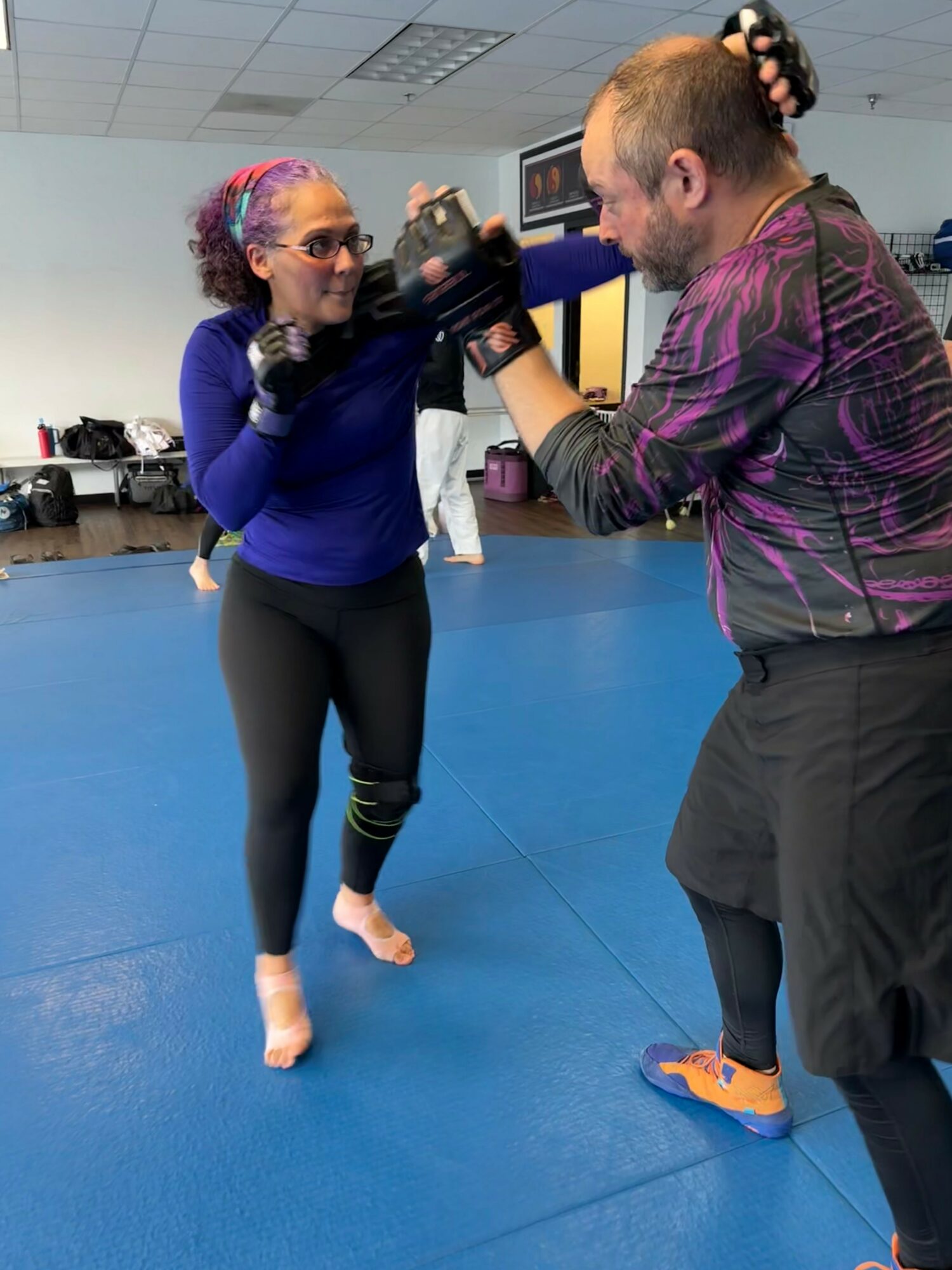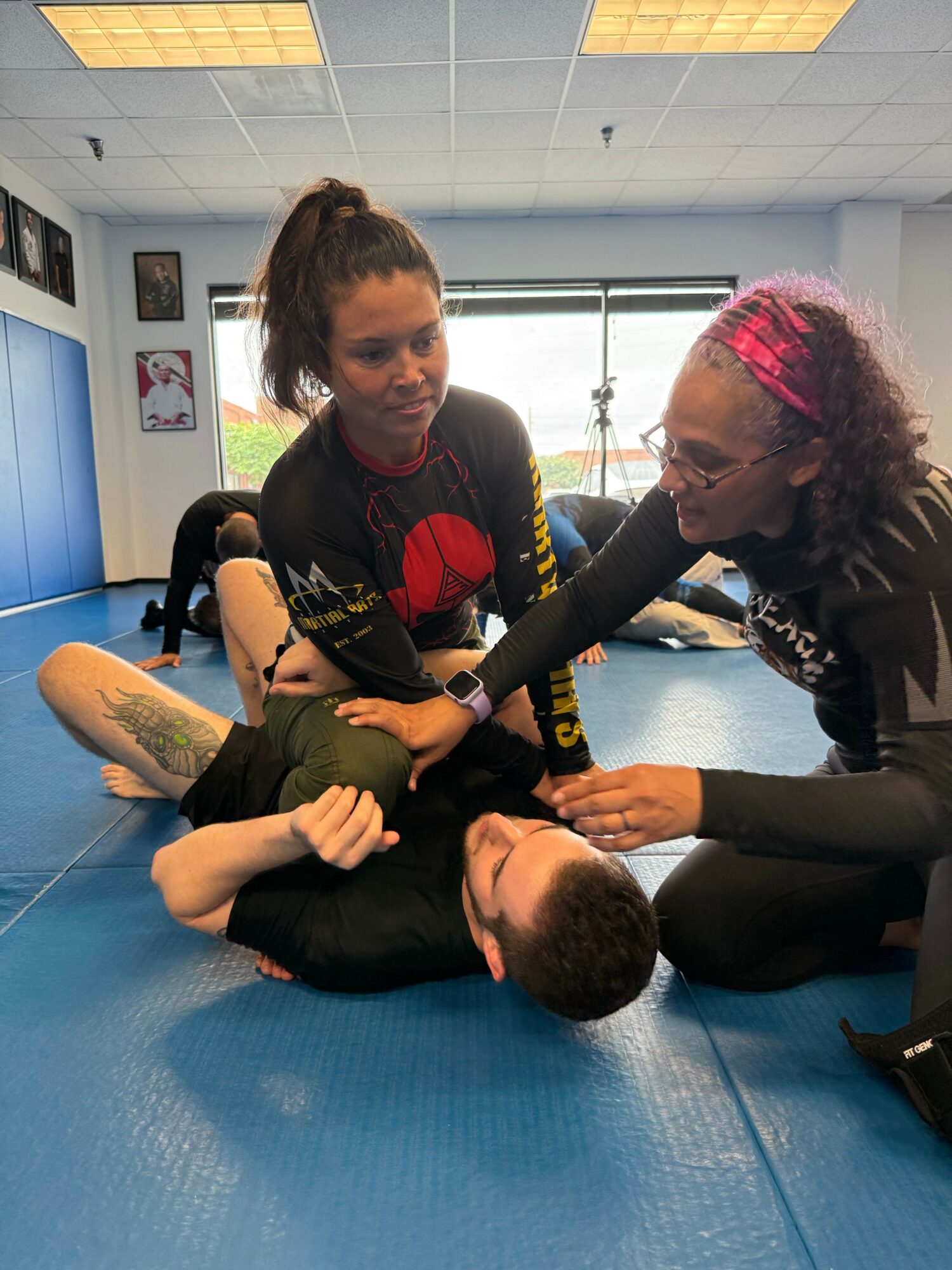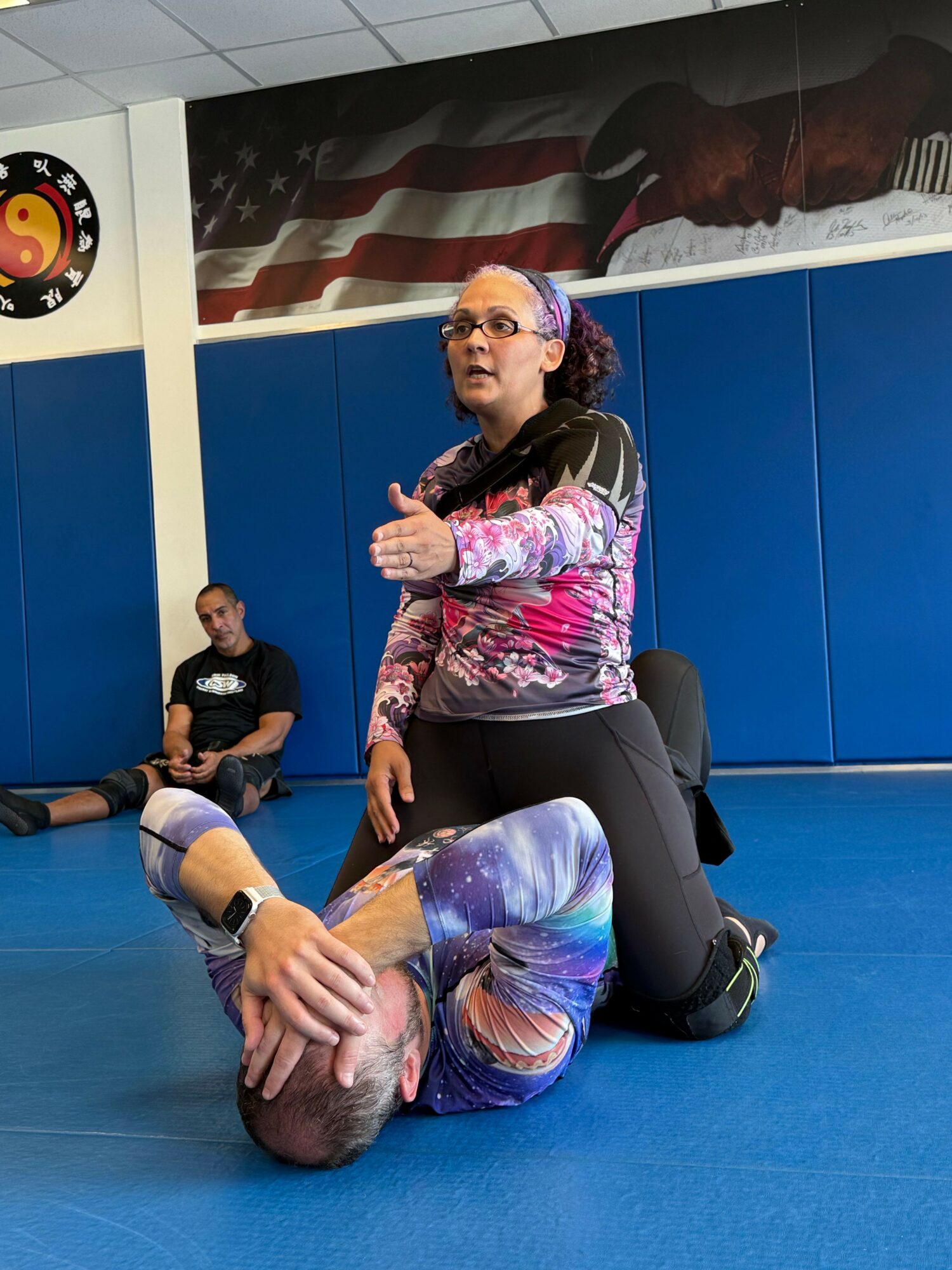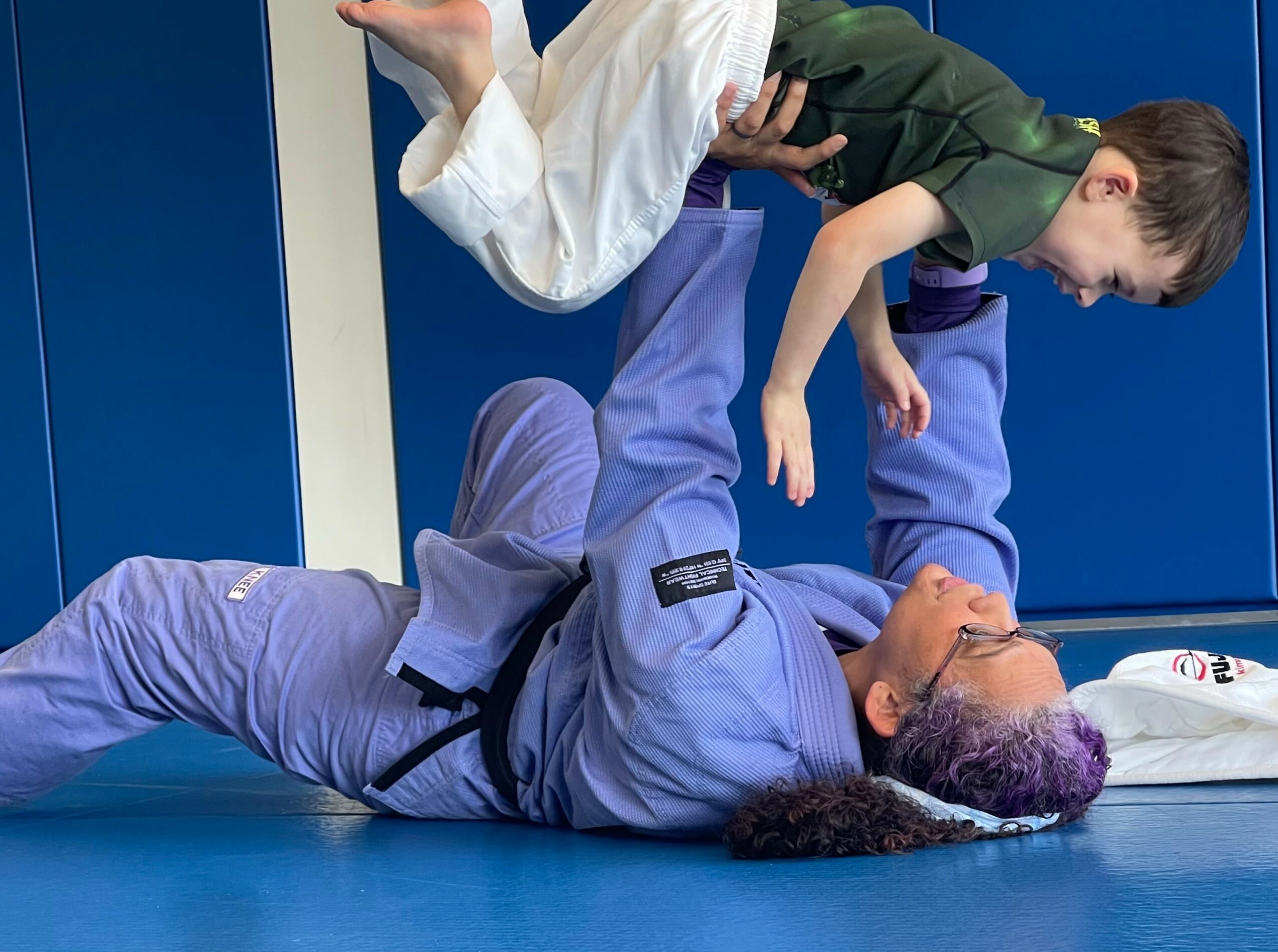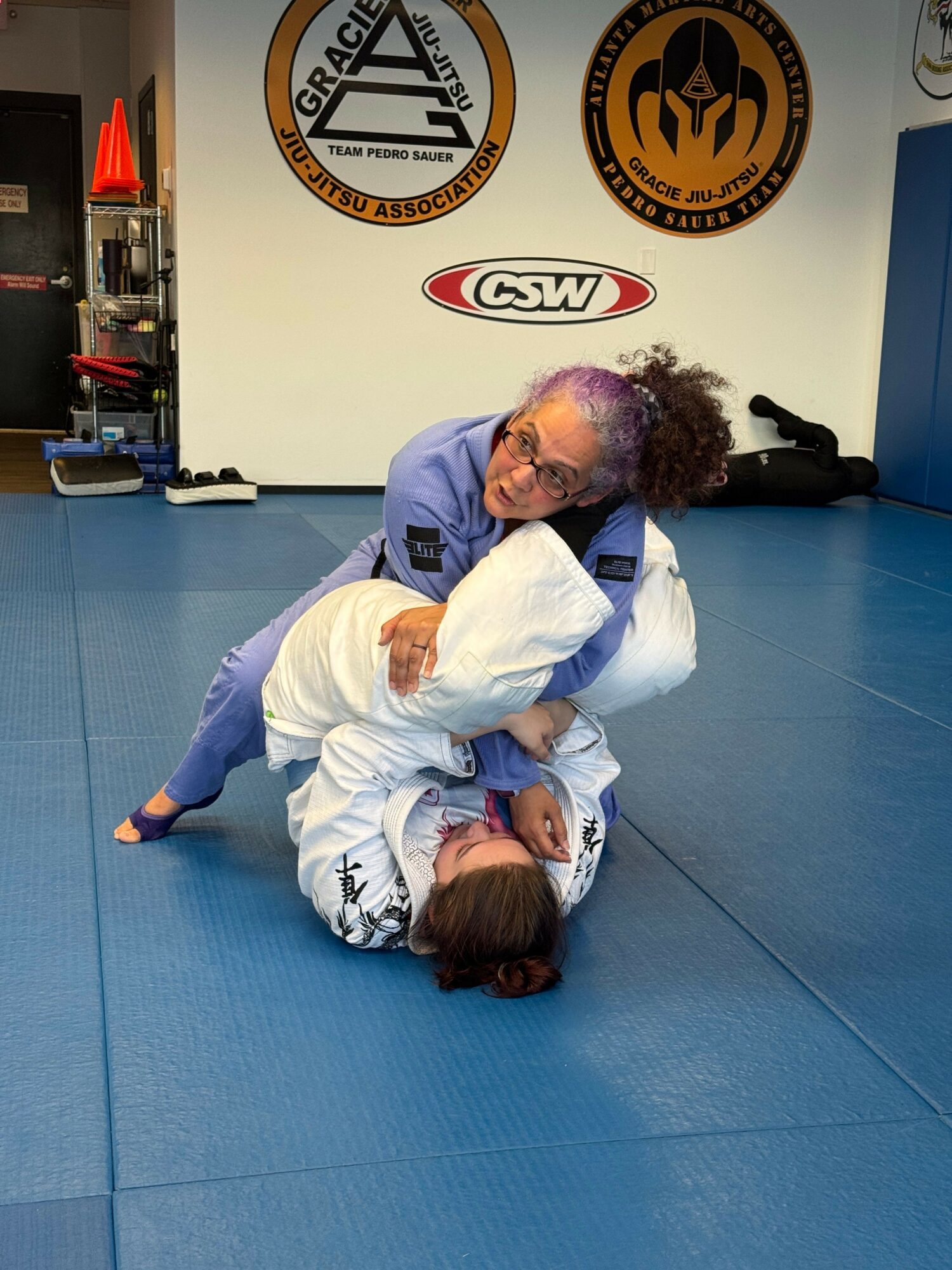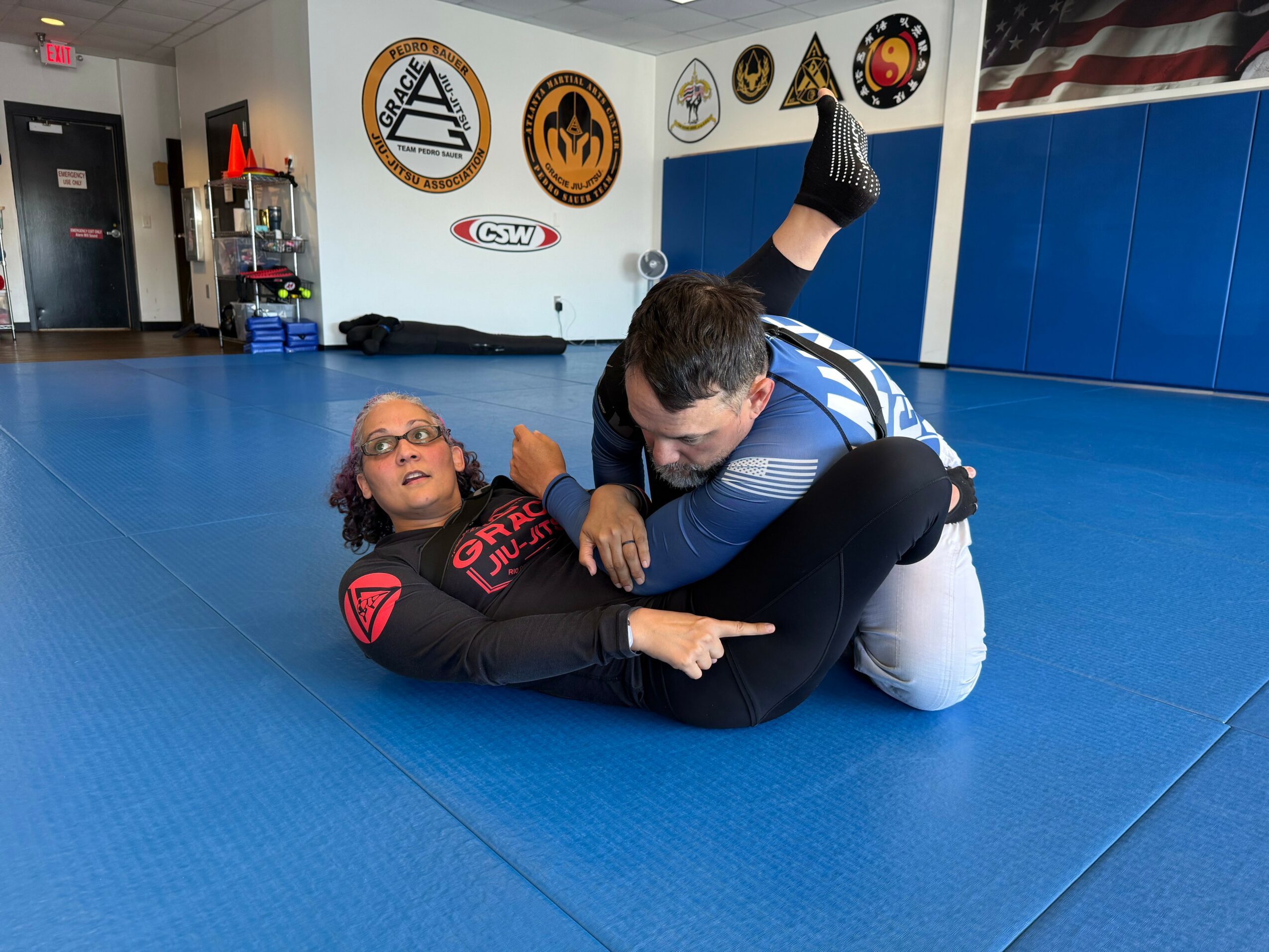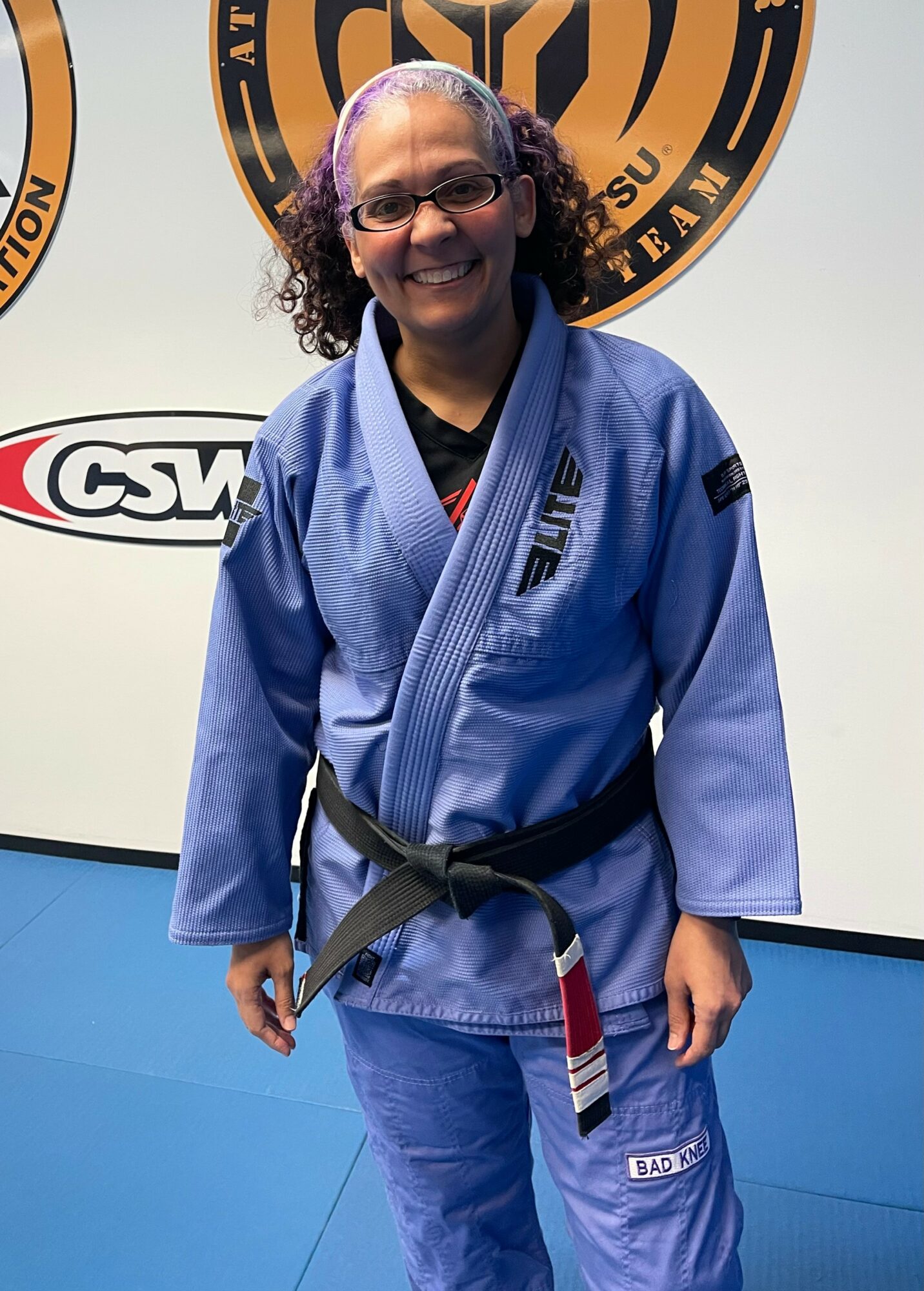

We recently had the chance to connect with Iris Rousseua and have shared our conversation below.
Good morning Iris , we’re so happy to have you here with us and we’d love to explore your story and how you think about life and legacy and so much more. So let’s start with a question we often ask: What are you most proud of building — that nobody sees?
What I’m most proud of building is everything that happens behind the scenes at my martial arts school. Most people see the classes, the students training, and the promotions — but they don’t see the systems, lesson plans, and structure that make it all run smoothly. Running a martial arts school isn’t just teaching; it’s operations, curriculum development, and constant problem-solving.
I’ve built streamlined processes to handle the business side so I can focus on what really matters — the students. From designing lesson plans that challenge both kids and adults, to tracking their progress and ensuring every student gets what they need out of class, I take pride in the details that most people never notice.
And for me, it never stops. Even when I’m injured, I find ways to keep learning and training — because growth doesn’t take a break. That mindset is built into everything I do behind the scenes.
Can you briefly introduce yourself and share what makes you or your brand unique?
I started training and working at the Atlanta Martial Arts Center a little over 20 years ago. What began as a hobby and a passion evolved into a lifelong career. I started with Jiu-Jitsu, and once I got comfortable on the ground, I branched out into other arts offered at the school — Jeet Kune Do, Filipino Kali, Thai Boxing, Combat Submission Wrestling, Kung Fu, Judo, Chinese Boxing, the Keysi Fighting Method, and more.
At the time, I didn’t realize how unique my training experience was. I wasn’t just learning under my instructor, Alan Baker — I was also training directly with some of the greats in each discipline through the associations our school was connected with. Looking back, I see how much that exposure shaped me.
Over the years, I’ve earned instructorships in Jiu-Jitsu, Combat Submission Wrestling, Jeet Kune Do, Filipino Kali, STX Kickboxing, and more. Alongside martial arts, I’ve also trained in executive protection, tactical operations, and firearms through Baker Tactical, the Civilian Tactical Association, the Executive Protection Institute, and Force Solutions. All of that has molded me into a well-rounded instructor and business owner who understands both the physical and mental sides of training.
When I took ownership of the Atlanta Martial Arts Center in January of this year, my focus was to streamline operations so I could put my full attention back where it belongs — on the students. Not everyone comes to a martial arts school for the same reason. Some want confidence. Some want to learn how to defend themselves. Others just want a place to belong — a crew they can feel a part of. My job is to figure out what each student needs and deliver that.
Our focus at AMAC is to create a space where people come for fun and friendship while learning valuable self-defense and building confidence in themselves — all while being surrounded by a team that has their back.
I’ve also learned over the years that setbacks are inevitable, and it’s how we respond that defines us. I’ve trained through knee and shoulder injuries and learned to adapt my training around them. I try to pass that same mindset to my students — you may not always be at 100%, but you can still show up, learn, and grow. In a real self-defense situation, you might not be at your best, so learning to adapt is part of the training.
At the end of the day, AMAC isn’t just a school — it’s a place where people come together to challenge themselves, support each other, and grow. We train hard, have fun, and build a team that feels like family.
Great, so let’s dive into your journey a bit more. What was your earliest memory of feeling powerful?
It’s not so much that I remember a moment of feeling powerful — it was realizing the opposite. I remember understanding at a young age that I was powerless in certain situations, and that no one was coming to save me. That feeling stuck with me. It wasn’t fear that took hold — it was determination. I decided early on that I didn’t want to ever feel that helpless again.
That realization is what drove me toward martial arts and, later, tactical training. It wasn’t about control or aggression — it was about preparation, self-reliance, and confidence. Power, to me, isn’t about dominating others. It’s about knowing that no matter what happens, I have the tools, the mindset, and the ability to handle it. That’s the kind of power I want my students to find for themselves too.
What did suffering teach you that success never could?
Suffering taught me that nothing worth having comes easy — and if it does, you probably won’t value it the same way. The struggle, the grind, the setbacks — that’s where the real growth happens. When you have to fight for something, you appreciate it on a different level.
I think when things come too easily, people tend to take them for granted. But when you’ve been through hard times — injuries, failures, long hours, doubt — and you still push through, that success hits different. It sticks. It changes who you are.
Suffering taught me patience, resilience, and perspective. It taught me that pain is temporary, but what you build through it lasts. And in my line of work, that lesson translates to everything — on the mat, in business, and in life.
Sure, so let’s go deeper into your values and how you think. Is the public version of you the real you?
I’d say the public version of me is definitely real — it’s just not all of me. I’m an extroverted introvert. I can run a class, talk to parents, and connect with people easily, but I also really value my quiet time and space to recharge.
At first, people sometimes think I’m a little unapproachable, but once they get to know me, they realize I’m actually the one trying to make sure everyone feels included and part of the group. I like bringing people together — making sure no one’s on the outside looking in.
Before we go, we’d love to hear your thoughts on some longer-run, legacy type questions. How do you know when you’re out of your depth?
I know I’m out of my depth when I can’t answer, demo, or explain something clearly — either right away or with a little thought. To me, that’s not a weakness, it’s awareness. It means I’ve hit a point where I need to step back, learn, and fill that gap.
It doesn’t mean I’m wrong or that someone else’s way is automatically better — it just means there’s more to learn. And that’s fine. If I don’t know the answer, I’ll find someone who does, learn from them, and make sure next time I do know it. That’s how you grow.
Contact Info:
- Website: https://atlantamartialartscenter.com/
- Instagram: @atlanta_martial_arts_center
- Facebook: https://www.facebook.com/atlantamartialarts
